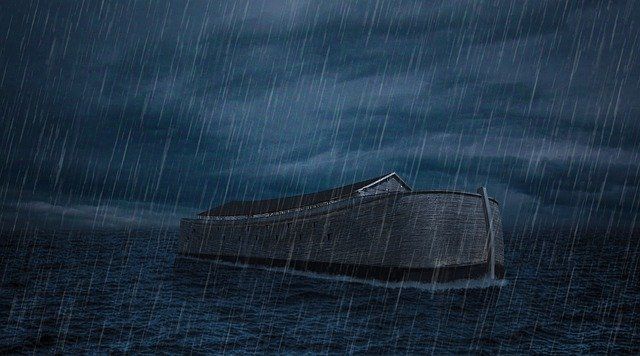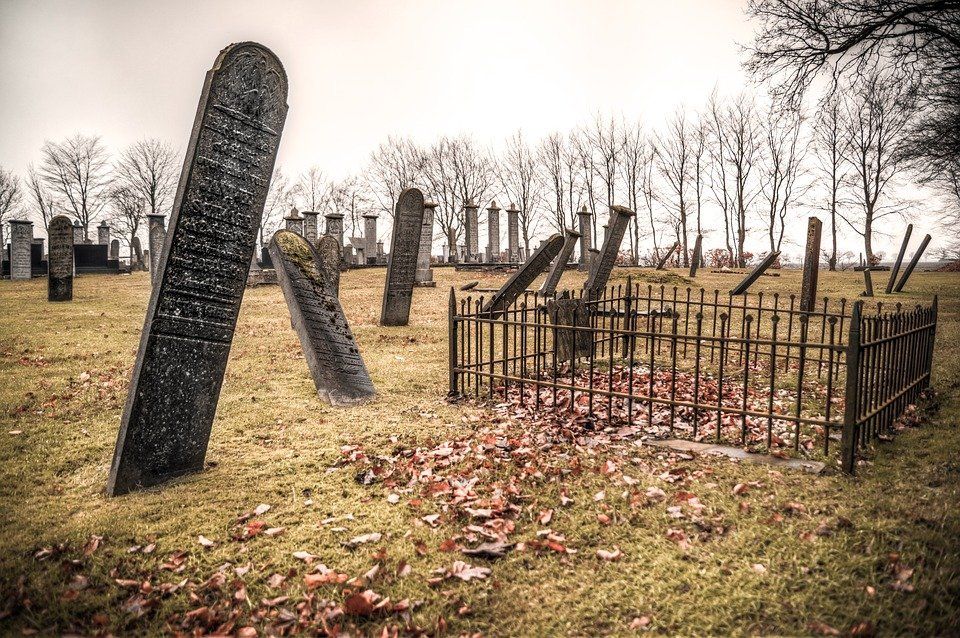Imagine living in a quiet mountain valley in Nicaragua, at the foot of the Casita volcano. Hurricane Mitch sweeps across the mountains, depositing inches of rain. The mountainside collapses in a river of mud. Your village is buried, its homes destroyed, and 1500 people die. Imagine living near a quiet beach in Papua New Guinea, thinking that this must be the most beautiful place in the world. Suddenly a tidal wave roars in carrying all before it, leaving 3000 dead and many more injured and homeless. These are only two of the recent natural disasters that have filled our newspaper headlines. Perhaps your peace has been shattered by some recent tragedy, and you have wondered, ‘Why?’ Why do these things happen? Why does God allow them? Why do the innocent suffer?
Why do tragedies happen?
Let us seek to answer the three questions posed above. This year has seen other tragedies. Floods in China have left many dead and multitudes homeless. Famine in Sudan continues to take many lives. Other problems are man-made. The ongoing ‘ethnic cleansing’ in Kosovo, bombs at the U.S. embassies in Kenya and Tanzania and, of course, Omagh.

Why do such things happen? Is it just fate? Blind chance? Many would say so. They see no reason in life. As Jean-Paul Sartre put it: ‘We are born by accident; we live our lives without purpose, and we die by chance’. Is that what we should believe? No, because it is a long way from the message of the Bible. From beginning to end the Bible presupposes that God exists and that nothing happens apart from him. Even a sparrow doesn’t die without God’s will (Matthew 10:29). The apostle Paul declares that God ‘works all things according to the counsel of his will’ (Ephesians 1:11). According to the Bible, therefore, nothing is by accident and everything has meaning. God is sovereign and takes responsibility for his actions.
Being honest
We have to be honest and say that we cannot always explain why a given event takes place. Perhaps we should say that, usually, we cannot explain it. What we can do, though, is fall back on the truth that God is not only sovereign, but also good and just. Therefore, everything that happens is fair and just. The verse is often quoted, but nonetheless wonderfully true: ‘Shall not the Judge of all the earth do right?’ (Genesis 18:25). Those words were spoken as God prepared to destroy the cities of Sodom and Gomorrah.
Why does God allow it?
That leads us to the second question. If God is in control, as the Bible says, why does he allow such tragedies? In one sense it is easier to blame tragedies on blind chance, because then we do not have to face this more difficult question. If God allows the sparrow to die, why does he do so? If God allows famine and floods, why does he do it? And even more relevant: if God allows the terrorist to plant his bomb, why does he do so?

The first answer is that the human race is in rebellion against God. We live in a fallen, God-rejecting world that consequently lies under his judgement. In the case of the cities mentioned above, Sodom and Gomorrah, their great wickedness fully deserved the destruction that came upon them. In one sense, all disasters are divine judgements. This was so with the flood in Noah’s time. It was true of the destruction of the families of several kings of Israel, in Old Testament times. Sometimes in times of judgement, those who trusted in God have been rescued, as Noah and his family were at the time of the flood, and as Lot and his daughters were when Sodom was destroyed.
Secondly, there is another way in which disasters can be viewed – as warnings. One day some people told Jesus about two tragedies in which seemingly innocent people had died (Luke 13:1-5). His reply must have shocked many of his hearers. First he said that these people were not greater sinners than anyone else. That tells us that disasters are not always judgements on particular people for their sins. However, the real shocker came when Jesus said, ‘Unless you repent you too will all perish’. The deaths that had occurred so tragically were warnings to other people. Death is always a reminder of the brevity and uncertainty of life. Every time we lose a loved one, we should not only mourn their death, but also ask ourselves some questions: ‘Suppose I had died?’ ‘Am I ready to die?’ ‘Where do we go after death?’ When a terrible tragedy occurs, these questions come with even greater force. When large numbers perish in terrorist attacks or in natural disasters, we are reminded powerfully of the fragile nature of life. Such events are warnings to us, so that we might prepare ourselves for the inevitability of death by turning to seek our Maker before it is too late.

The innocent
It is not only the guilty who suffer. We have to be realistic and recognise that there are many times when innocent people including Christians are caught up in disasters. So let us come to the third question we asked earlier: Why do the innocent suffer? This is a question often asked by non-Christians and sometimes by Christians as well.
The answer is not easy to accept. The fact is that there are no innocent people. When we talk of ‘innocent’ people we mean those who are relatively good on a human level, but there are no truly innocent people in God’s estimation. He is altogether holy. We, on the other hand, are all sinners. Sin is universal. We are sinners by birth, by nature and by practice. Even children are not innocent, as most parents realise.
The Bible teaches that Adam’s sin was imputed to all of us, not arbitrarily, and certainly not unfairly. In one sense, all of us were on probation in the Garden of Eden, because Adam was our representative. By that we mean that the whole human race was present, though unborn, in Adam. It was not just one person who rebelled against God’s law; it was all humanity that sinned. This seems to be the meaning of Romans 5:12, where Paul says concerning Adam’s failure that ‘through one man … all sinned’. Even though we may have difficulty understanding this, we must again fall back on the justice of God. We deserve our sinful nature, and express it constantly, because we gladly follow the same path of disobedience that Adam took.

A matter of grace
The ‘bottom line’ is that no pain, sorrow or tragedy can ever be considered ‘undeserved’ or ‘unfair’. When we ask, ‘Why are so many starving in Sudan?’ we are asking the wrong question. We should be asking, ‘Why am I not starving?’ When we see people with serious disabilities, we shouldn’t wonder why they are suffering, but rather consider why we enjoy good health.
That we are spared the suffering our sins deserve, is all a matter of grace. Some people suffer more than others, but no one suffers more than they deserve and most of us suffer far less. If we received from God what our sins merited, we would all be sick, or starving, or the victims of violence. We should marvel that God, in his wisdom and goodness, spares most of us from great suffering. It is all undeserved grace. None of us deserves good health, or material prosperity, or any of the other blessings we enjoy in life. Yet God gives us these things in various measures. He ‘sends the rain on the just and on the unjust’ and provides for our daily needs, whether we appreciate it or not (Matthew 5:45; 6:26).
Salvation
Of course, grace goes far beyond physical suffering. If we got what we deserved for our sins, we would all end up in hell, but God in love and grace has sent Jesus Christ to purchase salvation for sinners. If, because of God’s grace, we have come to trust in Christ, and know the joy of forgiveness, then our constant question should be, ‘Why me, Lord?’ ‘Why am I a Christian and my friend or my family member is not?’ The answer does not lie in ourselves, as if we were somehow better than others. We are not. The answer lies in the grace of God, who chose to call us out of our rebellion and to himself. How we should magnify the grace of God!
So when we see or hear of tragedies, we need to acknowledge that God has allowed the situation to occur as part of his global and eternal purpose. He has allowed it to cause men to fear and seek him, to promote his glory, and for the good of his children.
If we ourselves are the victims of accidents, sickness or even of crime, we must seek to see the hand of God in our circumstances, submitting to his will. We do not suffer as we deserve for our sins, and it is only grace that keeps us from a greater suffering. Above all, if we are true believers in the Lord Jesus Christ, the same grace that either spares us from suffering, or enables us to endure it, will one day bring us safe to heaven to experience the fulness of God’s love for ever.





